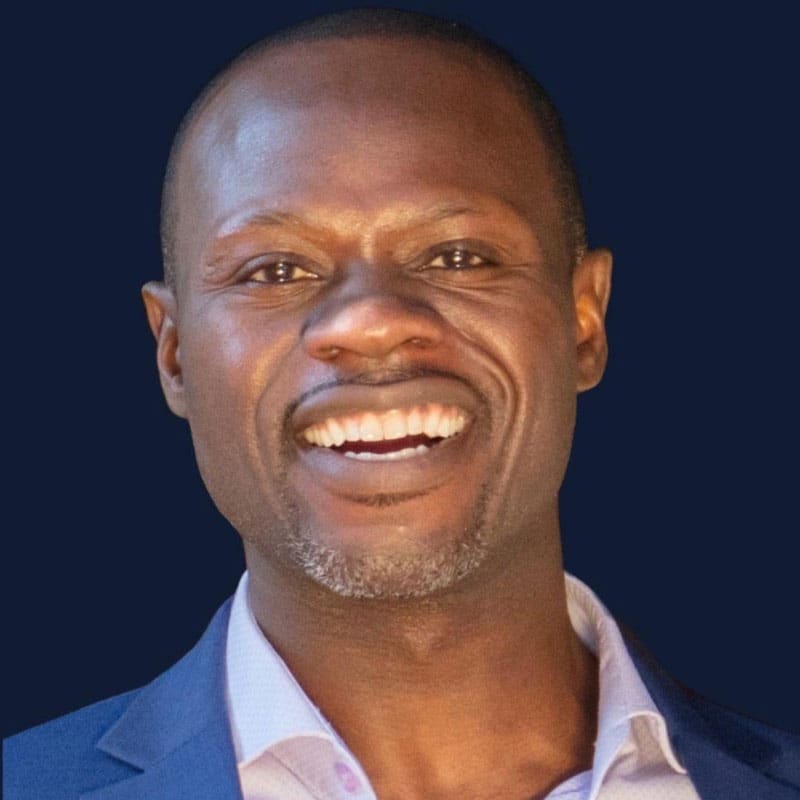How Technology and Venture Capital Can Work Together for Future Equity

When used responsibly, technology can drive progress, positivity, and equity. But how many important technologies are waiting to be funded, developed, and used to bend the moral arc of the universe toward justice? VC firms have opportunities to alleviate economic inequalities that block progress by employing more equitable, later-stage founder awareness processes for selecting founders.
From books and radio to television and smartphones, the demonization of technology is about as old as humanity itself. Yet, at its very core, technology is nothing more than a tool. Just like a hammer or saw, technology inherently occupies a space of neutrality. History offers myriad examples of ways technology can be used for nefarious purposes — but we’ve also seen how, when wielded responsibly, technology can be used to drive progress, positivity, and equity.
Consider the camera. After two white men in the Jim Crow-era South kidnapped, tortured, and murdered 14-year-old Emmett Till, his mother insisted on an open-casket funeral so the world could bear witness to the brutality of white supremacy. Widespread coverage thrust the gruesome images of Till’s mutilated face onto newspaper covers and into the consciousness of millions of Americans, breathing new life into the civil rights movement.
Nearly 70 years later, we still see the effects of technology on social change. Every day, tiny but powerful smartphone cameras provide an aperture into injustice. It was smartphone video of the brutal murder of George Floyd that triggered a racial reckoning in the spring of 2020. It was smartphone video of a white woman calling the police on a Black man in Central Park that illustrated how white people have used their privilege to endanger the lives of people of color.
Technology is key to an equitable future
We still live in an unjust world, but there’s no denying we’re better off thanks to the lenses of technology and social media. The question is: How many other technologies are waiting to be funded, developed, and used to bend the moral arc of the universe toward justice? How many of those transformative ideas have gone unrealized due to systemic inequities?
Since its American debut in the ’70s, the venture capital industry has been a tool for building generational wealth — certainly for investors, but also for founders. It’s no secret that diversity in VC is severely lacking — meaning people of color have not had the same access to VC resources, nor the freedom to build generational wealth, as their white peers.
Consider the staggering wealth gaps in the U.S. According to 2019 data, for every $1 of wealth the median white family controls, the median Black family holds on to a meager 12 cents. A typical white family possesses approximately $184,000 in wealth, while the typical Black family possesses only $23,000. The global pandemic has only exacerbated this inequity. Still, this isn’t an issue too big to solve. VC firms have an opportunity to help ameliorate this economic inequality by employing more equitable, later-stage founder awareness processes for selecting founders. VCs can also make an impact in this space by innovating in how they source deal flow.
Hope for social justice lies in diversified venture capital
Most firms do not intentionally set out to perpetuate biases. Yet, the underrepresentation of diverse founders in VC deal metrics has persisted for over a decade. How is this possible? Perhaps it can be explained through behavioral analysis of deal selection activities.
It turns out most firms select founders the way “American Idol” selects winners: The judges see and hear the contestants before choosing a champion, making it easy for implicit bias and bigotry to creep into their process and uphold status quo systems of power. If firms want to ensure historically underrepresented and underfunded founders realize opportunities to garner funding, they need to take a lesson from “The Voice,” whose judges follow a blind audition model. VC firms need to evaluate founders with their backs to them, so to speak, making selections based on alignment with the investment thesis, proof of concept, market size, company performance, and other objective criteria. Could this create conditions that deny or drastically reduce the ability for implicit bias to play a role in the selection process?
No matter the root cause, we must find a way to deploy VC funding in ways that promote growth and opportunity for marginalized founders and their transformative ideas and companies. That means proactively sourcing deals in communities and populations that are typically underrepresented — including women, people of color, immigrants, and those who identify as LGBTQIA+. It also means diversifying partnership teams so more prospective founders can see themselves within the partnership ranks of VC firms. In doing so, firms can help hedge against implicit bias and create well overdue space for diversity in VC. Just as technology is a tool to help see injustice, when used correctly, VC funding can be a tool to help fix injustice and create a more equitable future.
Written by Yinka Faleti.
Have you read?
Study: Music successful CEOs and c-level executives listen, 2023.
Which are the healthiest countries in the world for 2023?
Best Business Schools In The World For 2023.
LLC for Solopreneurs: Everything You Need To Know.
Dos and Don’ts for Golf Beginners by Roger Hoit.
Add CEOWORLD magazine to your Google News feed.
Follow CEOWORLD magazine headlines on: Google News, LinkedIn, Twitter, and Facebook.
Copyright 2024 The CEOWORLD magazine. All rights reserved. This material (and any extract from it) must not be copied, redistributed or placed on any website, without CEOWORLD magazine' prior written consent. For media queries, please contact: info@ceoworld.biz








